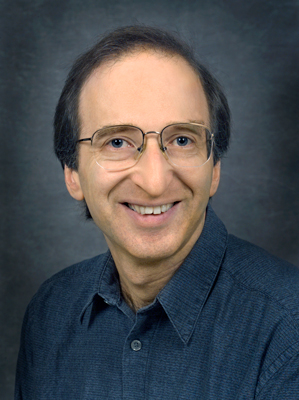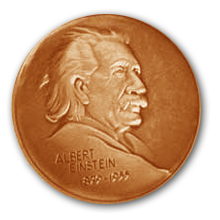Saul Perlmutter of Berkeley Lab’s Physics Division, a professor of physics at UC Berkeley, has won the Einstein Medal presented annually by the Albert Einstein Society of Bern, Switzerland, for “discovering the acceleration of the universe” via the observation of very distant supernovae. Perlmutter shares the award with Adam Riess of the Space Telescope Science Institute and John Hopkins University.
Perlmutter is the leader and cofounder, in 1988, of the international Supernova Cosmology Project (SCP) based at Berkeley Lab, which was established to develop ways of using distant supernovae as standard candles to measure the expansion rate of the universe. By 1994 the SCP had demonstrated techniques allowing it to find numerous “supernovae on demand” during prescheduled telescope time. In January of 1998 Perlmutter announced the group’s surprising result, that the expansion of the universe is not slowing, as almost all scientists expected, but instead is accelerating due to a mysterious something, first assumed to be the cosmological constant originally proposed by Albert Einstein in his Theory of General Relativity but soon labeled “dark energy.” Its nature still unknown, dark energy is now thought to constitute almost three-quarters of everything in the universe.
Adam Riess, who shares this year’s Einstein Medal with Perlmutter, is a member of the High-z Supernova Team (z stands for redshift) led by Brian Schmidt of the Australian National University, which also announced their discovery of accelerating expansion in 1998.
The accelerating universe was named Science magazine’s 1998 Discovery of the Year. Perlmutter, Riess, and Schmidt shared the Shaw Prize in Astronomy in 2006, and Perlmutter was awarded the Antonio Feltrinelli Prize in the Physical and Mathematical Sciences later that year. Perlmutter and Schmidt, plus the members of their teams, were jointly awarded the Gruber Cosmology Prize in 2007.
The Einstein Medal was first presented to cosmologist Stephen Hawking in 1979 and has been awarded to many distinguished scientists whose work is closely related to Einstein’s theories, including Berkeley Lab cosmologist George Smoot in 2003, three years before he won the Nobel Prize in Physics. The Society will present the 2011 Einstein Medals to Perlmutter and Riess in Bern on May 27. To honor the occasion the two recipients will offer public talks on the discovery of dark energy.
Additional information

